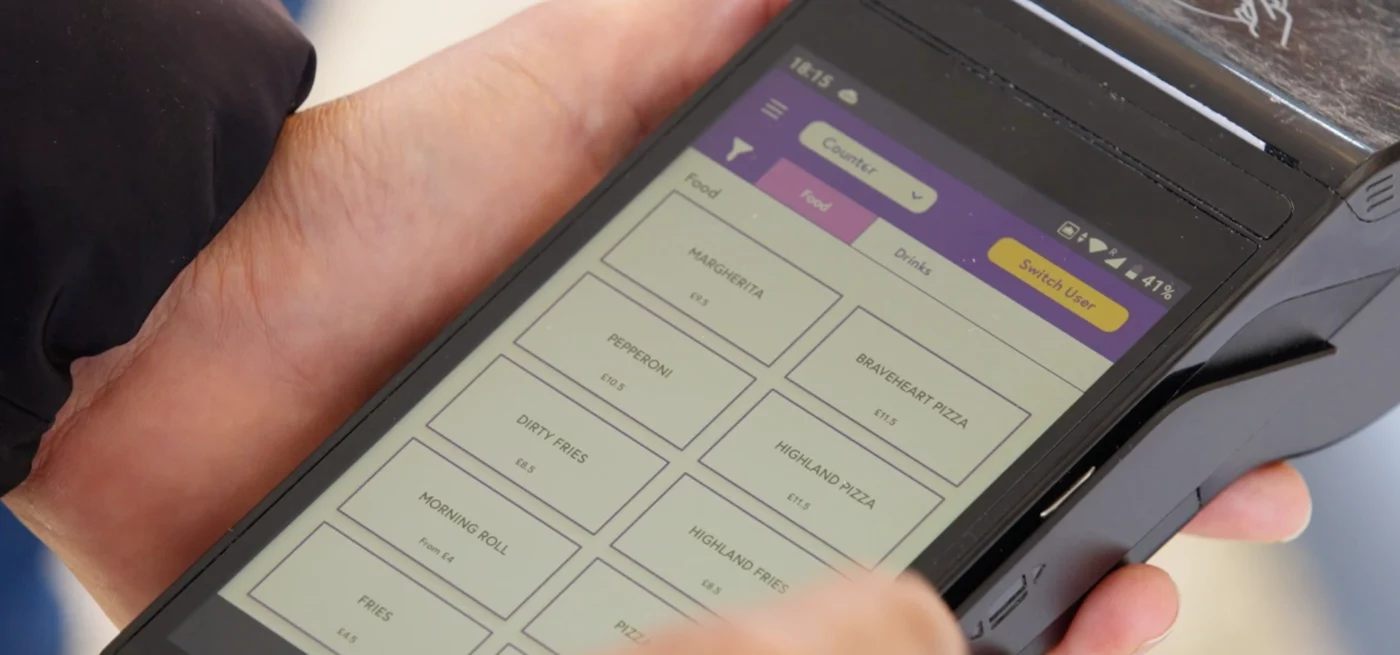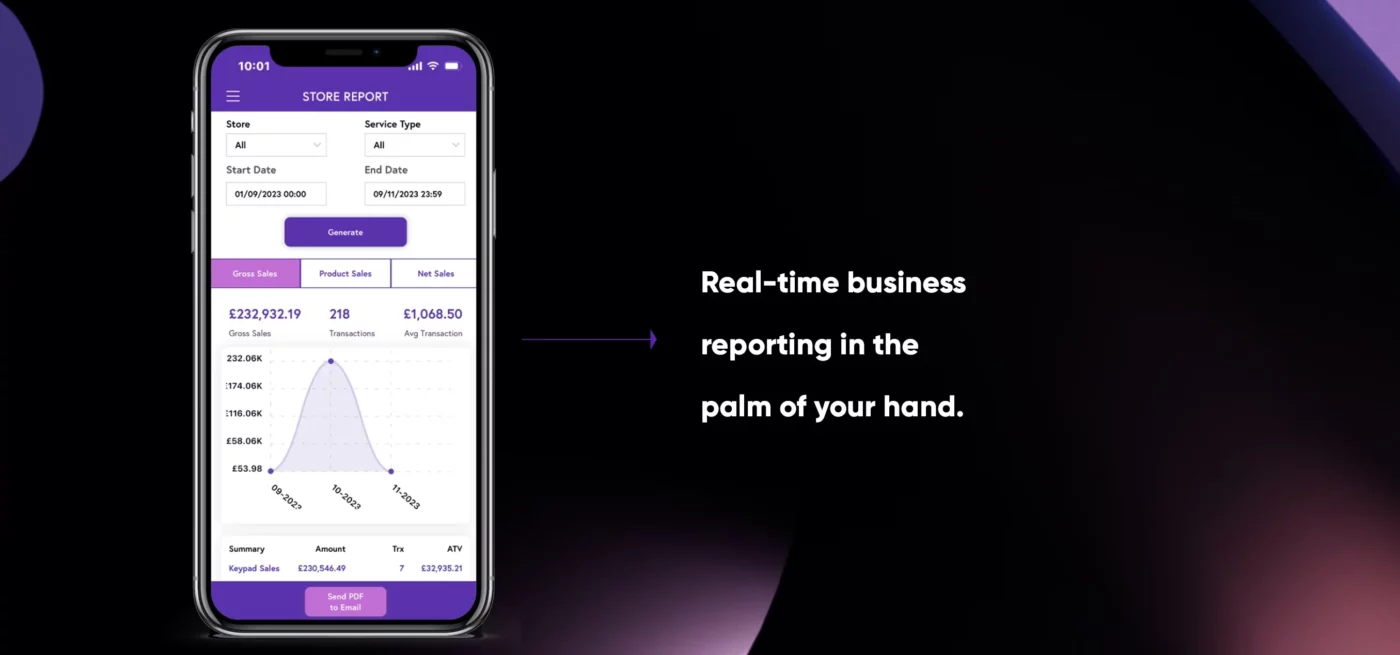fabric: Cranking up the transaction volumes
Over 24 years, fabric has cemented its position as the jewel in the crown of the London clubbing scene. But, even with its international reputation and impressive line-ups, fabric isn’t immune to the difficulties faced by the entertainment industry today. As margins are squeezed, it becomes all the more important to optimise performance during trading hours. Read on to discover how fabric is using technology to improve its processes and generate more revenue.

fabric’s rigid music-first commitment, combined with its unique setting in an old meatpacking warehouse, has helped create something of a legend. “I’ve worked at various branded nightclubs and bars around the country,” said Operations Director Luke Laws, “but none of them have the same soul as fabric.” However, like other nightlife venues, fabric’s revenue is under threat. “Our main challenge is spiralling costs,” said Luke. “And you can’t pass them on. Added to that, you’ve got a reduction in people going out and a reduction in their spending power.”
When every second of trading time and every penny counts, it’s crucial to have technology partners who are willing to go the extra mile to reduce costs and maximise revenue. To learn more, we asked Luke to walk us through his partnership with NOQ.

The problem: Staffing, theft, and bottlenecks
When Luke first joined fabric, the club was experiencing a lot of unexplained missing stock and some unexpected programmes running on the till terminals. To combat this, Luke replaced the system with the most basic, analogue setup he could find. It was unhackable and data couldn’t be ‘lost’ but was labour intensive. “I had one spreadsheet per bar,” Luke explained. “I’d take the till report and manually add it to the spreadsheet. It was a laborious task.”
An old system when it was integrated, it was soon on its last legs. Luke brought in a new till system in 2019. But that wasn’t without its issues, especially since the till and the payment terminals weren’t connected. “We found ourselves in a situation where we had a permanent till and a separate card machine”, said Luke. “We had to staple two receipts together for every transaction. And then, when we integrated the two, we couldn’t integrate more than one PDQ per terminal without completely locking out the terminal. On top of that, the transaction speed was awful. I think it was 17 seconds from payment to releasing the tool for the next person. Extrapolate that over to 25,000 transactions across a weekend; that’s a lot of time spent waiting around.”
A fixed till system also comes with the issue that it can only be used by one staff member at a time. “Our main bar does half our drinks,” said Luke. “And, while we have seven staff members, there were only five tills, so there was always a queue.”
The solution: Speed, automation, and collaboration
Looking to find a solution to these problems, Luke started searching for new suppliers. He was often disappointed. “I’ve done a lot of research with established till companies and found that either they didn’t have a handheld solution, their transaction speeds were the same as our existing system, or they didn’t seem to give a toss.”
NOQ, in comparison, was a breath of fresh air: “They listened,” Luke said. “Of course there were problems but they were really hungry to solve them. To me, that is much more valuable than a more established system that doesn’t care about you.”
Handheld terminals
First of all, Luke implemented NOQ’s all-in-one terminals. Staff can now complete the entire transaction, from inputting the order to taking payment and issuing a receipt, with a device the size of a smartphone. Not only does he now have one terminal per staff member, but the processing is much faster. “We now have transaction speeds of three and a half seconds,” said Luke. “When you compare that to the 17 seconds we had before, that’s incredible. I’ve never come across a supplier with speeds to match that.”
Another important consideration for fabric is offline processing. Despite its central London location, connectivity is patchy. “We’re literally underneath the road,” said Luke. “There’s no 4G and, if there’s an issue with your WiFi during your peak trading time (which just happens to be 3.15 on a Sunday morning) it’s not going to be fixed.” NOQ’s terminals come with offline processing capabilities built in, so they can automatically switch to offline if connectivity is lost. “A few weeks ago, we lost connectivity for about 45 minutes,” recalls Luke. “With NOQ, we were able to keep on trading. This means we don’t have to keep £1000s of cash onsite and suddenly demand people pay in cash when they have no means of getting any.”

Automated stock management
fabric needed a watertight system that would monitor stock levels while removing some of the workload burden. Working in close consultation with Luke, the NOQ team developed a solution that lets fabric manage ingredients, order stock, raise purchase orders, and transfer stock between bars. It also features recipe management and variance reports to highlight discrepancies between projected and real stock counts. Different staff members can have different permissions so only trusted managers can approve purchase orders. Luke now has a much better overview of product performance including gross profit analysis on items based on cost and sale price.
“NOQ’s stock management feature is a prime example of the collaborative nature of our partnership,” said Luke. “By listening to our needs, they’ve created something that’s truly fit for purpose. Not only do we have better visibility over theft and wastage, but I also have more time on my hands to focus on other things.”
Streamlining membership
With growing pressure on profit margins, additional revenue streams are important for fabric. Membership and VIP programs present an opportunity to build loyalty and ensure clubbers keep coming back. Before NOQ, membership was a manual affair. Members would present themselves at the ticket office and then have to log into their account to prove their membership status. “People forgot their password or there was no signal,” Luke recalled, “it wasn’t a great experience.” NOQ’s system is much slicker. “Now it’s simply a matter of: You’re a member? Can I see your QR code? Scan it with the payment terminal. Done.”
This integrated membership solution also allows for a wealth of new data insights. Luke is working with NOQ to ensure the system delivers the insights he needs. “When a member arrives, I want to know what bar they went to, which rooms, what drinks they purchased, and what time they left.” This paves the way for trend data that can inform staffing decisions. “With enough people signed up,” explained Luke, “I can see which rooms are busier and at what times. This will tell me when staff should start, when they should finish, and where they’re needed the most.”
Taking this to the next level, Luke can see huge potential in using data to inform membership programs and drive adoption. “If we can make the club experience a lot better by using data to tailor the experiences, I can see our membership growing,” said Luke.
A true partnership
NOQ has provided fabric with a solution to speed up its bar sales through faster ordering and processing, while more automation keeps things running smoothly both front-of-house and behind the scenes. But it doesn’t end there. The two companies continue to collaborate to ensure NOQ’s solution meets fabric’s needs now and in the future. For Luke, this long-term view is especially important.
“All the individuals I’ve dealt with at NOQ have been eager to get it right. They’re really responsive and I get the impression they genuinely care about our success. That’s refreshing having dealt with many companies for whom we’re just a drop in the ocean and they have this ‘take it or leave it’ approach. NOQ takes the long-term view, and so do I. It’s a great partnership,” concluded Luke.

Could we help you too?
We’d love the opportunity to explore if we could help you increase revenue and improve efficiencies. Get in touch and we’ll set up a demo.